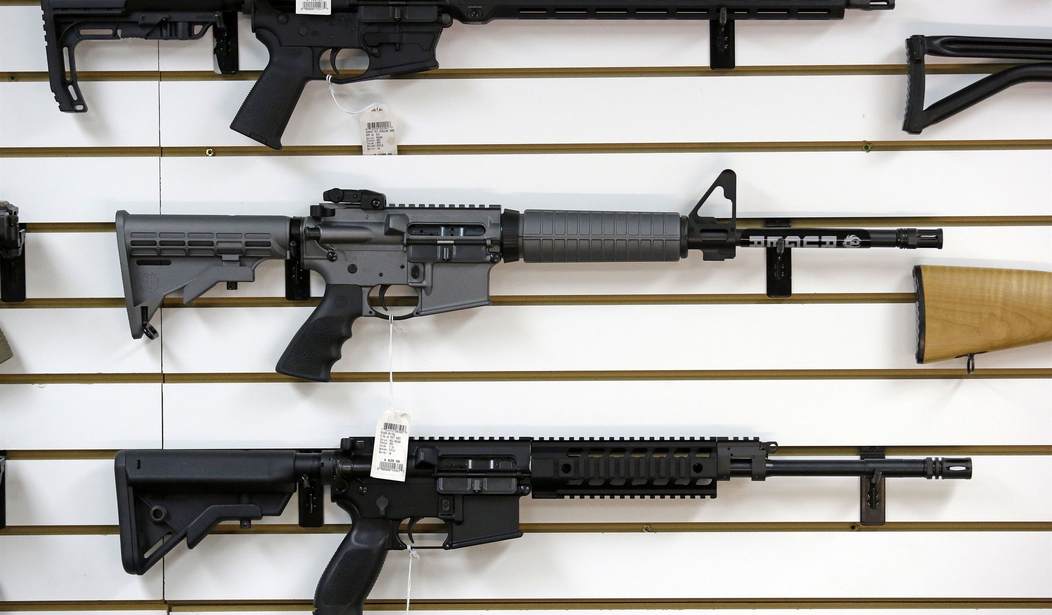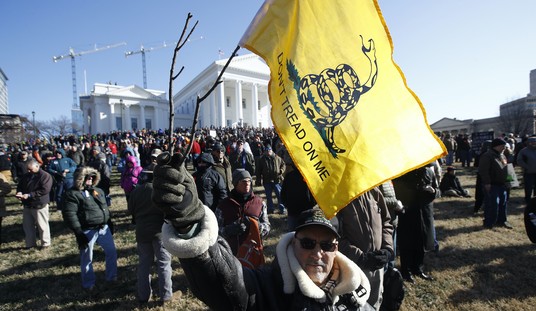The administration of Mexican president Andrés Manuel López Obrador is vowing to appeal after a federal judge in Boston threw out a lawsuit filed by the country against eight American gunmakers, but the odds of success are looking pretty slim. As U.S. District Judge F. Dennis Saylor wrote in his opinion, while the cartel violence that Mexico blames on the U.S. firearms industry is real, the firearms industry is at best an “indirect cause.”
The direct causes of that increase are, of course, the decisions of individual actors in Mexico to commit violent crimes. The indirect causes are no doubt many, but surely a substantial portion of the blame rests with American citizens. The rise of Mexican criminal organizations has been fueled by the unrelenting demand of Americans for illegal drugs, and those same organizations now play an ever-increasing role in the smuggling of illegal migrants across the border. The complaint here focuses on an additional indirect cause of that violence: the marketing and sales practices of American gun manufacturers and distributors.
According to the complaint, the increase in gun-related violence in Mexico is directly linked to the expiration of the U.S. ban on assault rifles in 2004. It alleges that when that ban expired, the production and manufacturing of firearms in the United States increased dramatically. In particular, gun manufacturers increased the production of military-style assault weapons, which are the type favored by criminal organizations. The complaint alleges that the manufacturers are aware of this and are “deliberate and willing participants, reaping profits from the criminal market they knowingly supply.”
Saylor didn’t delve into the merits (or the lack thereof) of the Mexican government’s arguments. Instead, he ruled that the AMLO administration and the American gun control lobby’s claims “are either barred by federal law or fail for other reasons.”
The PLCAA unequivocally bars lawsuits seeking to hold gun manufacturers responsible for the acts of individuals using guns for their intended purpose. And while the statute contains several narrow exceptions, none are applicable here. This Court does not have the authority to ignore an act of Congress. Nor is its proper role to devise stratagems to avoid statutory commands, even where the allegations of the complaint may evoke a sympathetic response. And while the Court has considerable sympathy for the people of Mexico, and none whatsoever for those who traffic guns to Mexican criminal organizations, it is duty-bound to follow the law.
While Saylor said that the Protection of Lawful Commerce in Arms Act bars most of the Mexican government’s complaints from being heard in court, the judge also ruled that two of the claims that relied on Connecticut and Massachusetts laws governing advertising and marketing aren’t sustainable either because the Mexican government doesn’t have standing to sue under either state’s statutes.
After Saylor’s dismissal of the lawsuit, the Mexican government was quick to announce its intention to appeal.
Mexico’s Foreign Affairs Ministry said it would appeal the decision “and continue insisting that the sale of guns be responsible, transparent and accountable, and that the negligent way in which they are sold in the United States facilitates criminals’ access to them.”
Mexico was seeking at least $10 billion in compensation, but legal experts had viewed the lawsuit as a long shot.
That may be true, but this case was never just about winning in a court of law. For both the Mexican government officials and the gun control lobby attorneys working with them, the court of public opinion is at least equally as important. Appealing the case allows Mexico to continue to blame U.S. gun makers for the actions of drug cartels south of the border, while the gun control lobby can point its finger at the PLCAA and ramp up their calls for its abolishment; something Democrats from Joe Biden on down have been pushing on Capitol Hill.
As the firearms industry trade group NSSF pointed out not long ago, one of the major ways cartels get ahold of U.S.-made weaponry is through gun trafficking; not from border-state gun shops, but from the Mexican government itself.
Mexico has just one firearm retailer in the entire country. That’s in the heart of Mexico City and is encamped in the middle of a military base. Still, guns are being recovered and it turns out that Mexico’s military is a source. Mexico’s Army is losing approximately 30percent of their firearms purchased from U.S. manufacturers. Those firearms are being recovered in crime scenes across the country. Firearms manufactured in the United States and sold lawfully through military contracts aren’t the only ones. Other firearms from manufacturers based in Australia, Belgium, Germany, Italy, Romania and Spain are also being recovered at crime scenes.
The fact that these firearms are being “lost” by the Mexican Army is worth noting, since it is only the Mexican Army that can purchase these firearms.
The report of these firearms going missing came from Mexican journalist Carlos Loret De Mola and was reported by Breitbart. That report also indicated that it is only the Mexican Army that can sell firearms and that an office called CENAPI, that resides within that of the Mexican Attorney General Alejandro Gertz Gomez, tracks firearms recovered at crime scenes but Loret De Mola claims that information is being suppressed because of Mexico’s pending lawsuit against U.S. manufacturers. CENAPI reportedly denied Loret De Mola’s request for information about recovered firearms in what is being termed as a way to cover up the Mexican Army’s role in gun trafficking.
Mexico’s cartel violence can and should be addressed, but blaming gunmakers for the actions of a criminal syndicate is an unserious solution for a very serious problem, especially when the AMLO administration is so unwilling or unable to curb the corruption within the Mexican military. Still, look for gun control groups like Brady and Everytown to amplify Mexico’s arguments going forward, even as the firearms industry fires back with facts.







Join the conversation as a VIP Member